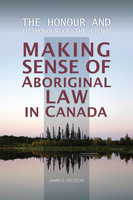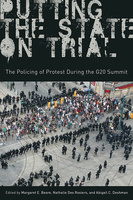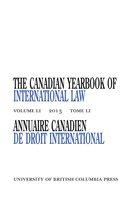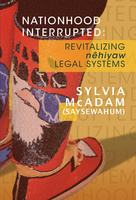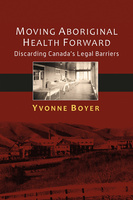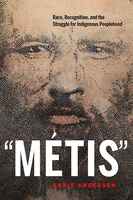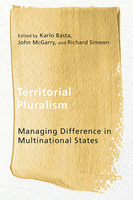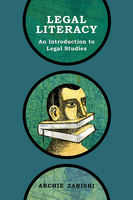Grit
The Life and Politics of Paul Martin Sr.
Grit examines the remarkable life and political career of Paul Martin Sr., a liberal reformer and cabinet minister from 1945 to 1968, who championed health care and pension rights, new meanings for Canadian citizenship, and internationalism in world affairs.
The Honour and Dishonour of the Crown
Making Sense of Aboriginal Law in Canada
Unique within Canadian legal writing, this book unpacks the complex conceptual differences between the fiduciary duty of the Crown and the honour of the Crown.
Putting the State on Trial
The Policing of Protest during the G20 Summit
Not only were peaceful protestors and innocent bystanders assaulted by police during the G20 Summit in Toronto in June 2010, but the constitutional rights of Canadians were as well. This book contextualizes the events and examines what should be done to safeguard the rights of Canadians to freedom of speech, peaceful assembly, and freedom from arbitrary arrest and detention in the future.
The Canadian Yearbook of International Law, Vol. 51
Our Chemical Selves
Gender, Toxics, and Environmental Health
This collection provides a critical, interdisciplinary analysis of how everyday exposures to common chemicals are adversely affecting the health of Canadians and reveals the connections between social inequity, environmental risks, and the gendered division of health burdens in Canada.
Nationhood Interrupted
Revitalizing nêhiyaw Legal Systems
Co-founder of the international movement Idle No More, Sylvia McAdam shares nêhiyaw (Cree) laws so that future generations may understand and live by them, revitalizing Indigenous nationhood.
Moving Aboriginal Health Forward
Discarding Canada’s Legal Barriers
This comprehensive analysis of Aboriginal health statistics, historical practices, and legal principles in Canadian law provides a practical framework for the reconciliation of Aboriginal health and healing practices within Canadian society.
Territorial Pluralism
Managing Difference in Multinational States
This volume examines the implications of territorial pluralism for the peaceful and democratic management of difference in states characterized by ethnic, national, linguistic, or cultural divisions.
Legal Literacy
An Introduction to Legal Studies
Legal Literacy provides a foundational understanding of key concepts such as legal personhood, jurisdiction, and precedent, and by introducing students to legal research and writing skills.


